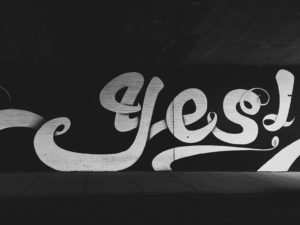As I work with the next piece of Allan Savory’s holistic management model from his book, Holistic Management, I’m thinking about choice.
When I learned emotional intelligence, I understood choice as central to our personal power. The choice to say yes. The choice to say no. Our power to choose mindfully and intentionally is constantly under attack.
I also learned, to my chagrin, how much time and energy I had spent trying to change or fix what I have no power to change or fix and overlooking the places in which I do have power. I could not effectively make decisions until I learned to let go, stop arguing with what is, step away from where the blows land, and stop taking poisoned bait.
As Joshua Fields Millburn says, “letting go is not something you do. It is something you stop doing.”
Reclaiming our ability and power to choose from our unconscious patterns and addictions is a difficult journey. Reclaiming our power of choice from those who have stolen it or seek to steal it is a journey into fear. Reclaiming our power of choice in spite of our fear is an exercise in heroism.
Once we have narrowed the whole we’re trying to manage to the dimensions in which we truly have power, we’re faced with learning how to make decisions and carrying them through.
The power of choice comes with responsibility. Some people don’t want to consciously choose because they don’t want to take responsibility for the outcomes they create with their choices. Another pattern I’ve often seen is the desire to have as many options as possible at all times – a recipe for noncommitment and a tactic that invariably steals power from others.
Choosing one option means we leave others behind. Choosing, and working with the consequences of our choices, requires flexibility, resilience, and the willingness to be wrong.
We will inevitably make choices resulting in unwanted, unexpected results.
However, refusing to choose is still a choice. Inaction has consequences, just as action does.
If we don’t choose, someone else or circumstances will choose for us.
Is the goal of decision-making perfection or empowerment?
Is the right choice the one giving us the outcome we want? Is the wrong choice the one resulting in an outcome we didn’t foresee or dislike?
Some choices are easy, like which shirt to wear.
Some choices tear us apart, like being forced to choose between caring for ourselves and caring for someone we love.
Most of the choices we make in a day we never even notice.
Some choices change the direction of our lives and we never forget the moment we stood at a crossroad and made a decision.
We can’t necessarily tell the important choices from the unimportant ones when we’re faced with them.
The ability to choose is strength and power.
The ability to choose involves risk and uncertainty. No matter how well we gather information, weigh pros and cons, and try to imagine the future, choice is largely a leap in the dark. As we choose, so do those around us. Our choices impact them, and their choices impact us.
It’s absolutely impossible to predict where some choices will take us.
In Savory’s model, the holistic context directs decision-making. If we know something about where we are, and something about where we want to end up, we can build a path from here to there. Our choices are steps along the path, taking us forward. The cause and effect of choice is always uncertain and dynamic, so we can expect our path to fork, detour, double back, and otherwise confuse and confound us.
Choosing is a flow that never stops. Once we’ve decided to step into it, one choice leads to another, and another.
No one, no one can make better choices for us than we can.
Savory proposes a list of questions, called context checks, to help in decision-making:
- Does this action address the root cause of the problem?
- Might this action have negative social, biological, or financial consequences?
- Does this action provide the greatest return toward the goals for each unit of time or money invested?
- Does this action contribute the most to covering the costs inherent in the endeavor?
- Is the energy or money used in this action coming from the most appropriate source in our holistic context?
- If we take this action, will it lead us toward or away from the future resource base described in our holistic context?
- How do we feel about this action? Might it lead to the quality of life we defined in our holistic context? What might its adverse effects be?
These questions ask us to think beyond our immediate desires and consider the possible impact of our actions on others, now and into the future. They ask us for our best predictions, and to think carefully about our goals through the lens of sustainability.
The context checks are not a one and done exercise. Savory suggests they be revisited frequently, either at set intervals or in case of unexpected outcomes and events.
There will certainly be unexpected outcomes and events, as well as new information. Each choice we make teaches us something, and we (hopefully) integrate what we’ve learned into our next step.
Learning to make choices, and discerning the places in which we have no power to make choices, are two of the most essential things we can do in life. It seems to me the act of choosing is far more meaningful than whether we or others judge our decisions and their outcomes as “good” or “bad.”
Sadly, our culture seems more concerned at present with criticizing and/or eliminating the choices of others rather than developing and supporting good decision-making skills that foster personal power for everyone. Many of us spend too much time preoccupied with things we cannot change, actively disempowering ourselves and making ourselves miserable.
© 2021 – 2023, Jenny Rose. All rights reserved.




